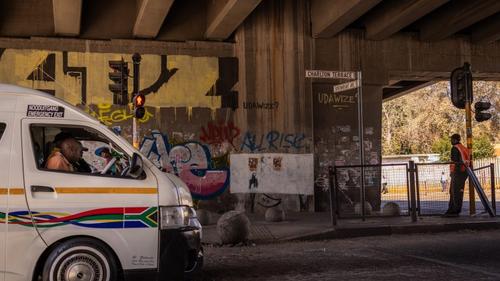411
Warning for Taxi Owners: Crackdown on Intimidation of Private Transport in South Africa

A disturbing trend of taxi operators intimidating private transport providers has emerged in South Africa, sparking concerns over the safety of commuters and the legality of these actions.
Recent reports from the Eastern Cape Department of Transport reveal that taxi drivers have been harassing private scholar transport operators, particularly in the Mthatha area.
Allegations include taxi operators demanding payments from private contractors and preventing them from dropping children at schools.
Horatio Hendricks, a Democratic Alliance member, described these actions as disruptive, unlawful, and traumatic for children. “Taxi operators have no legal authority to interfere with other transport providers,” Hendricks said, urging authorities to prioritize children’s safety and education.
Nationwide Impact of Taxi Intimidation
This issue isn’t isolated to the Eastern Cape. In Limpopo, taxi associations have allegedly instructed employers and schools to ensure employees and learners use taxis exclusively.
A notice circulating on social media in October 2024 threatened enforcement of this rule from 1 November, further alarming parents and commuters.
In other parts of South Africa, videos have surfaced showing taxi association patrols intimidating drivers for offering lifts to pedestrians or even family members.
Santaco Defends Patrols, Authorities Push Back
The South African National Taxi Council (Santaco) defended these patrols, with its Mpumalanga chairperson, Fanyana Sibanyoni, claiming they were for “security purposes.”
“Every company has the right to have security to look after their businesses,” Sibanyoni said, accusing private transport providers of infringing on taxi operators’ rights by operating without permits.
However, national police commissioner Fanie Masemola clarified that taxi patrols have no legal authority to stop or fine motorists.
“They can stop their own taxis but cannot interfere with members of the public,” Masemola said.
Legal Insights: What Drivers Need to Know
Legal experts and organizations like the Organisation Undoing Tax Abuse (Outa) have condemned these patrols, calling their actions harassment and extortion.
Stefanie Fick, Outa’s executive director, emphasized:
- Patrollers lack legal authority to pull over vehicles or issue fines.
- Such actions fall under the jurisdiction of the South African Police Service (SAPS) and metro police departments.
- White lights used by taxi patrols are regulated under the National Road Traffic Regulations and are reserved for legitimate security providers.
Fick urged motorists to report incidents to the police and highlighted that demands for fines amount to extortion, necessitating immediate intervention from law enforcement.
Call for Urgent Action
While the taxi industry is a vital part of South Africa’s transport sector, its operators must operate within the boundaries of the law.
Intimidation, harassment, and illegal roadblocks place undue strain on parents, learners, and other transport providers. These actions undermine public trust and exacerbate the challenges already faced by commuters.
Authorities are being urged to:
- Enforce stricter regulations against unlawful taxi patrols.
- Protect the rights of private transport providers.
- Ensure the safety of passengers, especially children.
Restoring order and accountability on South African roads is essential to maintain public trust and safety.
Follow Joburg ETC on Facebook, Twitter , TikTok and Instagram
For more News in Johannesburg, visit joburgetc.com















